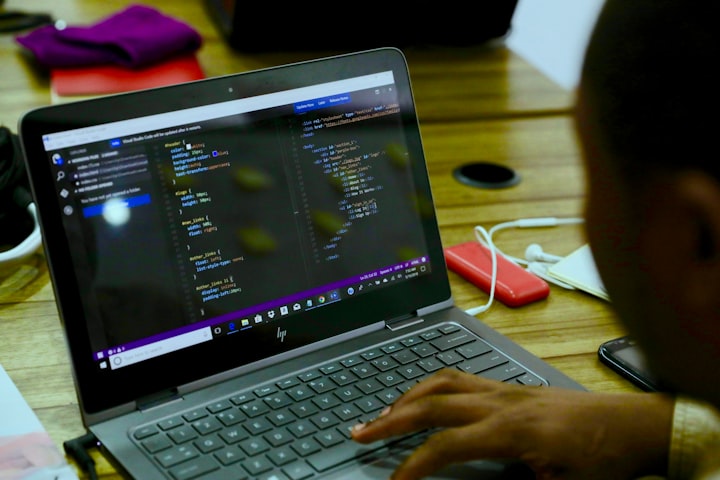The Ultimate Guide to Selecting the Perfect Laptop for Programming
7 Features you should check

Programming is a demanding task that requires a reliable and efficient laptop. With the myriad of options available in the market, selecting the perfect laptop for programming can be overwhelming. However, by considering a few key factors, you can ensure that you choose a laptop that meets your programming needs and enhances your productivity. In this article, we will discuss the essential tricks to selecting the perfect laptop for programming.
Recommended : Best Laptops under Rs 50K for programming

Performance: The performance of a laptop is crucial for programming tasks. Look for a laptop with a powerful processor, such as an Intel Core i5 or i7, or an AMD Ryzen equivalent. These processors offer the processing power needed to run multiple applications simultaneously and handle complex programming tasks efficiently. Additionally, prioritize laptops with ample RAM (at least 8GB, preferably 16GB or more) to ensure smooth multitasking and seamless performance.

Storage: Storage is another essential factor to consider when choosing a laptop for programming.

Opt for a laptop with a solid-state drive (SSD) rather than a traditional hard disk drive (HDD). SSDs offer faster read and write speeds, resulting in quicker boot times and improved overall system performance. Aim for at least 256GB of SSD storage to accommodate your operating system, development tools, and project files comfortably.
Display: The display is where you'll spend most of your time while programming, so it's essential to choose a laptop with a high-quality screen.

Look for a laptop with a Full HD (1920x1080) resolution or higher for crisp text and vibrant colors. Consider factors such as screen size, brightness, and color accuracy to ensure a comfortable and visually pleasing programming experience. Additionally, if you prefer working with multiple windows or need extra screen real estate, consider a laptop with a larger display or support for external monitors.
Keyboard and Touchpad: As a programmer, you'll likely spend hours typing code and navigating your laptop's interface, so a comfortable keyboard and responsive touchpad are essential.

Look for a laptop with a well-designed keyboard that offers tactile feedback and sufficient key travel. Backlit keyboards can be particularly useful for coding in low-light environments. Similarly, ensure that the touchpad is accurate and supports multi-touch gestures for smooth navigation and productivity.
Portability:

Depending on your preferences and working style, consider the portability of the laptop. If you often work on the go or need to carry your laptop between different locations, prioritize lightweight and compact models with long battery life. Ultrabooks and thin-and-light laptops offer a good balance of performance and portability, making them ideal choices for programmers who value mobility. However, if you primarily work in a fixed location, you may prioritize performance and connectivity over portability.
Operating System:

The choice of operating system depends on your programming preferences and requirements. While Windows is the most widely used operating system for programming, macOS and Linux are also popular choices, especially for web development and software engineering. Consider the compatibility of your development tools and programming languages with the chosen operating system to ensure a seamless workflow.
Connectivity:

Lastly, consider the connectivity options offered by the laptop. Ensure that it has an adequate number of USB ports (preferably USB 3.0 or higher), HDMI or DisplayPort for external displays, and other ports or slots you may need for peripherals and accessories. Additionally, built-in Wi-Fi and Bluetooth connectivity are essential for wireless networking and device pairing.
By considering these essential factors – performance, storage, display, keyboard and touchpad, portability, operating system, and connectivity – you can select the perfect laptop for programming that meets your needs and enhances your productivity. Remember to research and compare different models to find the best fit for your programming requirements and budget. With the right laptop, you can take your coding skills to the next level and tackle even the most demanding programming tasks with ease.





Comments
There are no comments for this story
Be the first to respond and start the conversation.